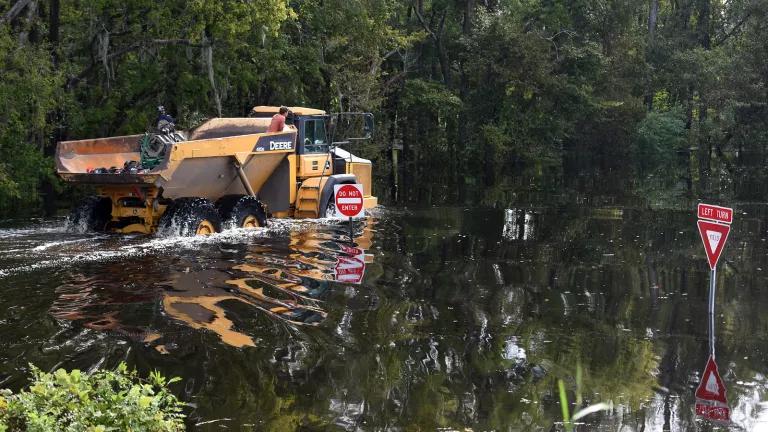CA Needs a Climate-Resilient Approach to Water Management
California is lucky to escape the wrath of hurricanes, like the ones that have pummeled Florida, Texas, Puerto Rico, and other areas. But we know that our state is not immune to extreme weather events. On the contrary, with climate change California is likely to face longer, more frequent and more extreme droughts. To ensure that we are prepared, we need a climate-resilient approach to water management.
This week, the California legislature will vote on two bills, AB 1668 and SB 606, that take important steps in this direction:
AB 1668 and SB 606 will:
- Establish water use efficiency standards that water suppliers would use to set customized, long-term water use targets based on their local conditions
- Update requirements for urban and agricultural water management plans and urban water shortage contingency plans
- Direct the Department of Water Resources to establish drought planning guidelines for small and rural communities—which were hit hardest in our recent drought
Stakeholders have been working on this package for more than a year, first through an advisory group process and then through the legislature. As with most legislation, these bills represent compromise between stakeholders—urban and agricultural water suppliers, environmental and social justice groups, and industry.
Even with these compromises, the bills represent a strong step forward toward improving urban water efficiency and water shortage planning. The bills focus on eliminating waste, rather than setting an arbitrary percentage reduction. Targets reflect local conditions—including climate, geography and land use—and retain local control, letting water agencies to decide how to reach their target.
These bills build upon lessons learned in the last drought. A more efficient California will be better able to weather a drought, will avoid construction of unnecessary or overlarge water supply and treatment facilities, thereby helping with water affordability, and will help reduce energy use and greenhouse gas emissions. The legislature should approve both bills and help build a more climate resilient state.



